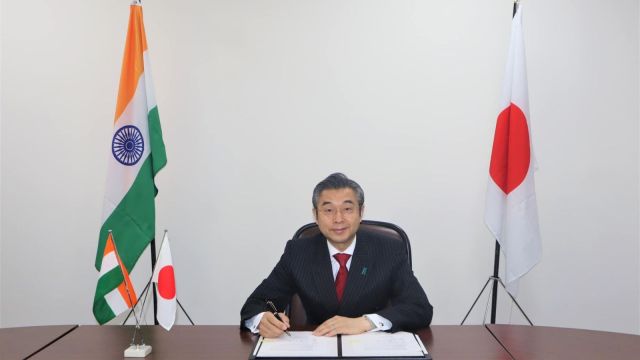
The Japanese ambassador to India Hiroshi F Suzuki has invited Indian students to Japan to study and work in the Asian country. He sent out this message in an interview with Japanese YouTuber Mayo San. While the interview focused on the lifestyle of India, the Ambassador had a special message for Indian students.
“I have one message for Indian people, particularly, to young people of India. Please go to Japan to study and work. If you are a student, it’s so easy to get a visa,” he said in the video interview. “If you are a student, all you have to do is present your student ID. I am encouraging young Indian people to go to Japan to get skill training and job opportunities.”
As per government data, a total of 1,302 Indian students were present in Japan for higher studies in 2022. Before this, 1761 students were studying in 2019, 552 students in 2020 and 193 Indian students in 2021. The decline in number in 2020 and 2021 could be due to the Covid pandemic. However, the number of students did decrease from 1761 in 2019 to 1302 in 2022.
The cost of studying in this Asian country is not as expensive as the US, the UK or even Australia. The total enrollment fee and tuition for Japanese undergraduate programmes is approximately ¥820,000 (Rs 5,81,600) at national universities, ¥930,000 (Rs 6,59,600) at public universities, and ¥1.1 million (Rs 7,80,100) to ¥1.64 million (Rs 11,63,100) at private universities (excluding medical, dental and pharmaceutical schools).
In addition, a stable scholarship system and tuition exemption/reduction system are also available.
Meanwhile, the cost of living varies from region to region, but the average monthly cost for an international student is approximately ¥ 89,000 (Rs 63,000).
Foreign students can work up to 28 hours a week as part-time workers, but they are not allowed to work in jobs where the hourly wage is extremely high, or the earnings exceed a certain amount of income per month.
While most Japanese universities (about 77 per cent) are private, the University of Tokyo, Kyoto University, and Osaka University are well-known in India.
